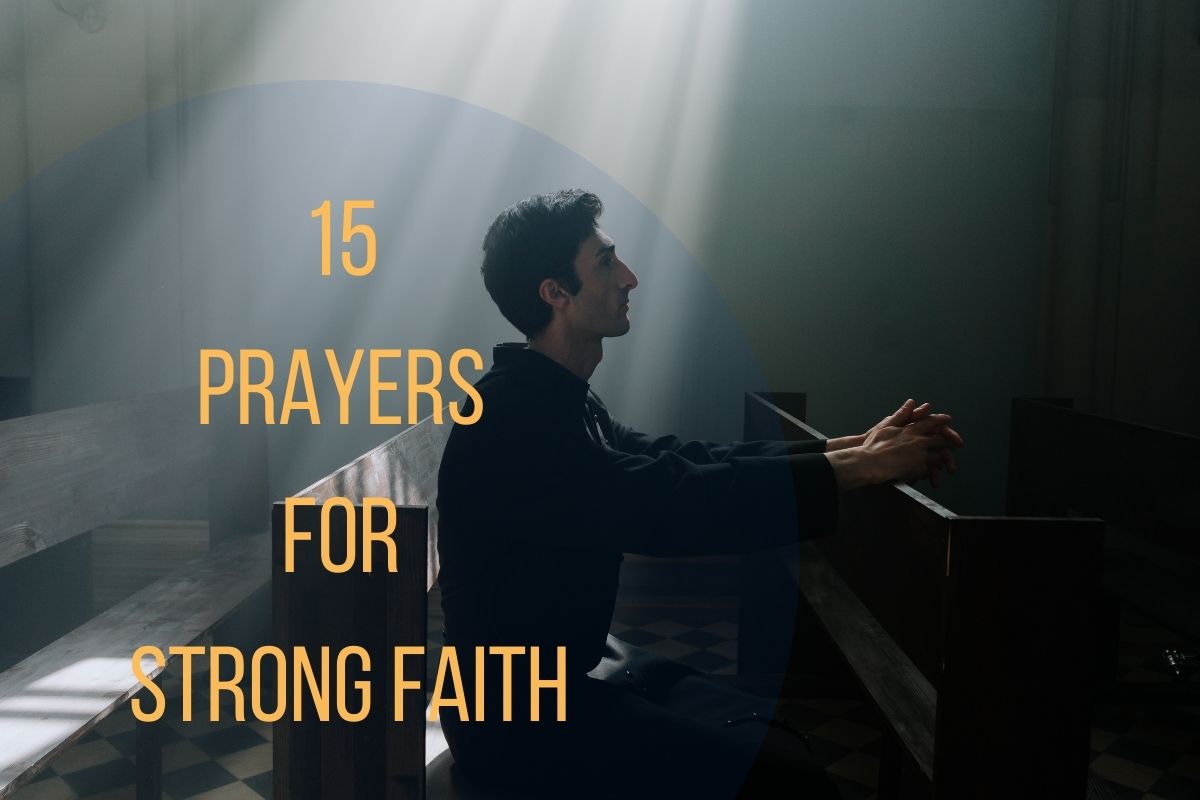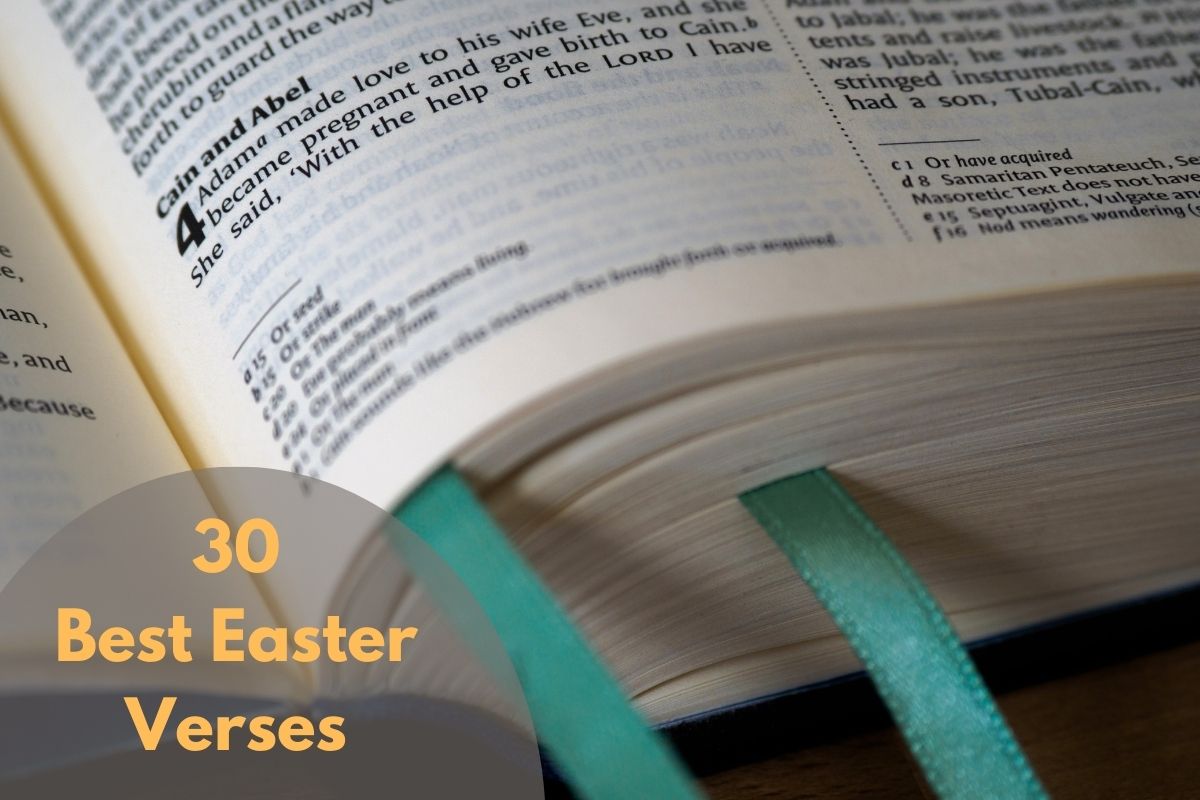The act of prayer holds a central place in Christian faith, serving as a means of communicating with God, seeking guidance, and finding solace in times of need. Christians frequently turn to prayer, both in spoken and silent forms, as a way to express their innermost thoughts and desires. However, an intriguing question arises within this spiritual context: can the devil hear silent prayers? In this article, we will delve into this question, exploring the concept of silent prayers, the biblical perspective on prayer, and the devil’s attributes to gain a better understanding.
Can The Devil Hear Silent Prayers?
The concept of whether the devil can hear silent prayers is a matter of religious belief and interpretation, and it varies across different religions and belief systems. In many religious traditions, it is believed that the devil or evil forces can be aware of one’s thoughts and intentions to some extent, including silent prayers. However, the devil’s abilities and limitations are often defined differently in different belief systems.
For example, in Christianity, some denominations teach that Satan is a fallen angel with knowledge and power, and he can tempt individuals and be aware of their thoughts and intentions. In this view, silent prayers may not necessarily escape the devil’s awareness.
In Islam, it is believed that the devil, or Shaytan, can influence human beings and is aware of their actions and intentions to some extent. Silent prayers may not be entirely hidden from Shaytan’s influence.
It’s essential to remember that beliefs about the devil and his abilities can vary widely within religious traditions, and not all individuals within a given faith may hold the same beliefs. Additionally, some people may interpret these concepts metaphorically rather than literally.
Ultimately, whether or not the devil can hear silent prayers depends on your personal beliefs and the specific religious or spiritual tradition to which you adhere.
The Importance of Prayer in Christian Faith
Prayer holds a central and vital role in the Christian faith. It is seen as a means of communication with God and serves various important purposes within the Christian tradition. Here are some of the key aspects that highlight the importance of prayer in Christian faith:
Communion with God
Prayer is a way for Christians to establish and nurture a personal relationship with God. It is a means for believers to express their love, gratitude, and devotion to God and to seek His presence in their lives.
Worship and Adoration
Christians use prayer to worship and adore God. They offer praises and thanksgiving for His grace, mercy, and love. Through prayer, believers acknowledge God’s sovereignty and holiness.
Confession and Forgiveness
Prayer allows Christians to confess their sins and seek forgiveness from God. The act of confessing one’s sins and seeking God’s mercy is an important element of Christian spirituality, leading to reconciliation with God.
Supplication and Petition
Christians use prayer to make requests or seek guidance from God. They may pray for their own needs, the needs of others, or for guidance in making important decisions.
Intercession
Christians often pray on behalf of others, interceding for the well-being, healing, or salvation of loved ones, communities, or even global concerns. Intercessory prayer is a way of expressing love and compassion for others.
Strength and Comfort
Prayer provides strength and comfort during challenging times. It is a source of solace and peace, helping believers navigate difficult circumstances and find hope in their faith.
Alignment with God’s Will
Christians use prayer to seek alignment with God’s will. They often ask for God’s guidance in making decisions and trust that His wisdom and purpose will prevail.
Spiritual Growth
Regular prayer can lead to spiritual growth by deepening one’s faith, understanding of Scripture, and relationship with God. It can help individuals become more attuned to the promptings of the Holy Spirit.
Expressing Gratitude
Christians express their gratitude through prayer, recognizing God’s blessings, answered prayers, and the good things in their lives.
Personal Transformation
Prayer can facilitate personal transformation by fostering qualities such as humility, patience, and forgiveness. It allows believers to seek God’s help in becoming more Christ-like in their character.
Community and Fellowship
Prayer is often a communal activity in Christian gatherings, fostering a sense of unity and fellowship among believers. It helps strengthen the bonds within the Christian community.
Biblical Foundation
The importance of prayer in Christian faith is deeply rooted in the Bible. The New Testament, in particular, contains numerous teachings and examples of Jesus and early Christian leaders emphasizing the significance of prayer.
In summary, prayer is a cornerstone of the Christian faith, serving as a means of communication, worship, confession, supplication, and spiritual growth. It plays a fundamental role in nurturing a personal relationship with God and is a source of strength, guidance, and comfort for Christians as they navigate their lives and deepen their faith.
Examining the Devil’s Attributes
To understand whether the devil can hear our prayers, we must first consider the nature of the devil. According to Christian theology, the devil is often described as a fallen angel who rebelled against God. The devil is portrayed as a malevolent entity, the adversary of all that is good and godly.
Can the Devil Read Our Thoughts?
One aspect of the devil’s attributes that prompts this question is the idea that he may have the ability to read our thoughts. Some believe that the devil can intercept our innermost thoughts and use them against us.
The concept of whether the Devil (or demons) can read human thoughts is a matter of religious and philosophical belief and interpretation, and there is no definitive answer that applies universally. Different religious traditions and belief systems have varying perspectives on the capabilities of supernatural beings like the Devil.
In many religious traditions, it is believed that supernatural beings, including the Devil, have knowledge and powers beyond those of humans. Some people believe that these beings can have access to human thoughts or can influence human thoughts and actions. This belief often depends on specific religious doctrines and teachings.
However, it’s important to note that these beliefs are a matter of faith and not empirical evidence. Different religious denominations and individuals may have differing views on this topic. Additionally, in secular or non-religious contexts, the concept of the Devil reading human thoughts is generally not a relevant or discussed concept.
Can the Devil Influence Our Prayers?
Another aspect to consider is whether the devil can influence our prayers. It is suggested that the devil may attempt to distort or manipulate our prayers, leading us away from a genuine connection with God.
The influence of the Devil or evil forces on a person’s prayers is a concept often discussed within the context of various religious beliefs and spiritual traditions. Different religions and belief systems have their own interpretations and beliefs regarding this matter, so the answer can vary depending on one’s religious perspective.
In many religious traditions, it is believed that prayer is a means of communication with a higher power, such as God, and that sincere and devout prayers are protected from negative influences, including the Devil or evil forces. In these belief systems, it is generally held that the intentions, faith, and sincerity of the person praying play a significant role in the efficacy of their prayers. Thus, a devout and sincere prayer is considered to be resistant to the influence of negative forces.
However, in some belief systems, particularly those that involve concepts of spiritual warfare or demonic influence, there may be concerns that the Devil can try to hinder a person’s prayers. In these cases, individuals may engage in specific practices or rituals to protect their prayers from such influences.
It’s important to note that the beliefs and interpretations regarding the Devil’s influence on prayers can vary widely, and not all religious traditions or individuals subscribe to these ideas. In many cases, the power of prayer is seen as a positive and sacred act that is meant to bring comfort, guidance, and connection to a higher power.
Ultimately, whether or not the Devil can influence prayers is a matter of personal belief and the specific religious or spiritual framework in which one operates. Different faiths and denominations may hold varying views on this subject.
The Power of Prayer in Christian Belief
Prayer holds a central and powerful role in Christian belief and practice. It is considered a means of communication between Christians and God, a source of guidance, comfort, and spiritual growth. Here are some key aspects of the power of prayer in Christian belief:
Communion with God: Prayer is a way for Christians to establish and nurture their relationship with God. It provides a direct line of communication with the divine, allowing believers to express their thoughts, feelings, and desires to God.
Worship and Adoration: Christians use prayer as a form of worship, offering praise, adoration, and thanksgiving to God. It is a means to acknowledge God’s greatness and sovereignty.
Petition and Intercession: Christians believe in the power of prayer to ask for God’s help, guidance, and intervention in their lives. This can include praying for personal needs, healing, or guidance, as well as interceding on behalf of others.
Confession and Repentance: Prayer is a way to confess sins and seek forgiveness. Christians believe that God is merciful and forgiving, and prayer plays a role in the process of repentance and reconciliation.
Strength and Guidance: Christians turn to prayer for strength and guidance in facing life’s challenges and making decisions. They believe that prayer can provide clarity, wisdom, and inner peace.
Community and Fellowship: Prayer is not limited to individual practice. It is also an essential part of corporate worship in Christian communities. It fosters a sense of unity and fellowship among believers.
Scriptural Basis: The Bible contains numerous passages that encourage and highlight the importance of prayer. For example, in the New Testament, Jesus taught his disciples how to pray through the Lord’s Prayer (Matthew 6:9-13).
Persistent Prayer: Christians are encouraged to be persistent in their prayers. The Bible mentions instances of persistence in prayer, such as the parable of the persistent widow (Luke 18:1-8), which illustrates the importance of perseverance in prayer.
Miracles and Divine Intervention: Many Christians believe in the power of prayer to bring about miracles and divine intervention. While not every prayer is answered in the way one might hope, Christians have faith that God’s will is at work in response to their prayers.
Spiritual Growth: Prayer is seen as a means of spiritual growth and deepening one’s relationship with God. Through prayer, Christians can experience a greater sense of God’s presence and understanding of their faith.
It’s important to note that different Christian denominations may have variations in their beliefs and practices related to prayer. While some emphasize formal, structured prayers, others encourage spontaneous and personal communication with God. Nevertheless, the overarching theme is that prayer is a fundamental and powerful aspect of Christian belief and spirituality.
The Effectiveness of Sincere Prayer
In Christian belief, sincere and heartfelt prayers are considered effective. It is the intention, faith, and honesty behind the prayer that truly matter. Silent prayers, in their profound sincerity, can be potent tools for establishing a connection with the divine.
How Prayer Connects Us with God
Prayer is seen as a bridge connecting believers with God. It is a channel through which individuals can express their deepest feelings and seek divine guidance, protection, and strength.
Biblical Verses on the Devil’s Limitations
1 Peter 5:8 –The Devil as a Roaring Lion
The Bible warns believers to “Be sober-minded; be watchful. Your adversary the devil prowls around like a roaring lion, seeking someone to devour” (1 Peter 5:8). This verse highlights the devil’s predatory nature but does not explicitly mention the devil’s ability to hear or influence silent prayers.
James 4:7 – Resisting the Devil
James 4:7 advises believers to “Submit yourselves, then, to God. Resist the devil, and he will flee from you.” This verse emphasizes the importance of resisting the devil’s influence, but it doesn’t address whether the devil can hear silent prayers.
Ephesians 6:12 – Spiritual Warfare
Ephesians 6:12 reminds Christians that “our struggle is not against flesh and blood, but against the rulers, against the authorities, against the powers of this dark world and against the spiritual forces of evil in the heavenly realms.” While it speaks of spiritual warfare, it does not clarify the devil’s ability to hear silent prayers.
Silent Prayers as a Form of Protection
How Silent Prayers May Offer Protection from the Devil
While the Bible doesn’t explicitly address whether the devil can hear silent prayers, many Christians find comfort in the idea that silent prayers may provide a form of spiritual protection. The silent and sincere nature of these prayers is believed to offer a direct line of communication with God, safeguarding believers from potential interference.
The Role of Faith in Prayer’s Efficacy
Faith plays a pivotal role in the efficacy of prayers, whether spoken or silent. It is faith that enables believers to establish a profound connection with the divine and find solace in their prayers.
Practical Advice for Effective Silent Prayers
Silent prayer, often associated with meditation and mindfulness practices, can be a powerful way to connect with your inner self and find spiritual peace. Here are some practical tips to make your silent prayers more effective:
Find a Quiet Space: Choose a quiet and peaceful location where you won’t be easily distracted. This could be a corner of your home, a garden, or a quiet room.
Comfortable Posture: Sit or kneel in a comfortable and relaxed posture. It’s essential to be physically at ease to maintain your focus.
Set an Intention: Before you begin, set a clear intention for your silent prayer. This could be a specific request, a desire for inner peace, or a wish for the well-being of others.
Deep Breathing: Start by taking a few deep breaths to calm your mind and body. Deep breathing can help you relax and focus your attention.
Mindful Awareness: Allow your thoughts to settle and pay attention to your breathing or a specific mantra or word. The idea is to be fully present in the moment.
Let Go of Distractions: As thoughts arise, acknowledge them without judgment and gently return your focus to your breath or chosen point of concentration. This process of acknowledging and letting go is essential in silent prayer.
Use a Mantra or Affirmation: Some people find it helpful to use a word or phrase as a focal point for their silent prayer. This can be a word with spiritual significance or a positive affirmation.
Practice Regularly: Consistency is key. Make silent prayer a part of your daily routine. The more you practice, the more effective it becomes.
Start Small: If you’re new to silent prayer, begin with short sessions and gradually increase the duration as you become more comfortable with the practice.
Be Patient: Understand that your mind may wander, and it’s natural. Don’t be too hard on yourself; silent prayer is a skill that takes time to develop.
Listen to Your Intuition: Silent prayer can be a time for receiving insights and guidance. Be open to the whispers of your inner self or the divine.
End with Gratitude: When you’re finished, express gratitude for the time you’ve spent in silent prayer and any insights or feelings that arose during the practice.
Journaling: After your silent prayer, consider writing in a journal. This can help you reflect on your experiences and track your spiritual journey.
Seek Guidance: If you’re struggling with your silent prayer practice or have specific spiritual questions, consider seeking guidance from a spiritual teacher, mentor, or counselor.
Respect All Traditions: Silent prayer can be adapted to your personal beliefs or religious tradition. Respect and incorporate the elements that resonate with you.
Remember that silent prayer is a personal journey, and there is no one-size-fits-all approach. It’s about creating a sacred space within yourself to connect with the divine or your inner self. Experiment with different techniques and find what works best for you.
Focusing on Your Intentions and Connection with God
To ensure the effectiveness of silent prayers, it is essential to focus on your intentions and your connection with God. These intimate moments of prayer are a direct line to the divine, and it is through them that protection and guidance may be sought.
Keeping Your Thoughts and Heart Pure in Prayer
Maintaining purity in thoughts and intentions during prayer is crucial. It ensures that your communication with God remains untarnished and undisturbed.
Conclusion
In the realm of Christian faith, the question of whether the devil can hear silent prayers remains a matter of theological debate. While the Bible does not explicitly address this issue, believers find assurance in the power of sincere and heartfelt prayers, whether spoken or silent, to establish a connection with God and seek protection from potential interference. It is faith, purity of intention, and unwavering trust that guide believers in their spiritual journey. Ultimately, the practice of prayer, in all its forms, serves as a source of solace, guidance, and protection.
FAQs
1. Can the devil hear my thoughts when I pray silently?
The Bible doesn’t provide a direct answer to this question, but Christians believe that sincere and heartfelt prayers, whether spoken or silent, are a means of communication with God rather than the devil.
2. How can I ensure my silent prayers remain pure and untarnished?
Maintaining purity in thoughts and intentions during prayer is vital. Focus on your connection with God and the sincerity of your prayers.
3. Are silent prayers more effective than spoken prayers?
The effectiveness of prayers, whether silent or spoken, is not solely determined by the method but by the faith, intention, and sincerity behind the prayer.







